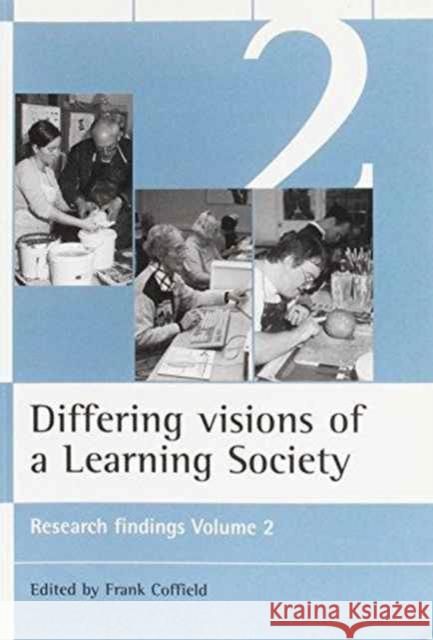Differing Visions of a Learning Society Vol 2: Research Findings Volume 2 » książka
Differing Visions of a Learning Society Vol 2: Research Findings Volume 2
ISBN-13: 9781861342478 / Angielski / Miękka / 2000 / 244 str.
Is lifelong learning the big idea which will deliver economic prosperity and social justice? Or will it prove to be another transient phenomenon? Picture lifelong learning, the editor suggests, as making its way through three overlapping stages - romance, evidence and implementation. Lifelong learning is tentatively entering the second stage, where research evidence is beginning to challenge the vacuous rhetoric of the stage of romance. The findings from the Economic and Social Research Council's programme of research into the Learning Society are presented in two volumes, of which this is the second. The editor, Frank Coffield, begins by surveying as a whole the findings of the 14 projects, and summarises them in a number of recurrent themes and policy recommendations. The chapters which follow present the aims, methods, findings and policy implications of six projects. Volume 1 contains similar chapters on the other projects. Taken together, the conclusions suggest very different ways of thinking about a Learning Society and very different policies from those in operation at present. The two volumes demonstrate from empirical evidence the continuing weaknesses of current policies and make proposals, based on hard evidence, for more effective structural changes. This second volume presents findings from a national survey of the skills of British workers, and it discusses both the meaning of the Learning Society for adults with learning difficulties, and the use of social capital to explain patterns of lifelong learning. Other chapters present for the first time five different 'trajectories' of lifelong learning, explore the determinants of participation and non-participation in learning, and examine innovation in Higher Education. Finally, two differing visions of a Learning Society are contrasted. The first extrapolates existing policies and practices into the next 5-10 years and finds them seriously wanting. The second option calls for more democracy rather than technocracy and develops a kaleidoscopic array of possible futures which find their source in the empirical work of the 14 projects. These volumes are essential reading for politicians, policy makers, practitioners, employers, and all teachers with responsibility for lifelong learning.











